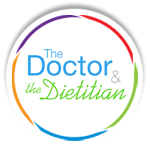Are My Hormones Making Me Fat?
Before we explain the hormone phenomenon, you must first realize that this is NOT an excuse for being overweight! As we all know, eating too much, eating the wrong foods, and not exercising all contribute significantly to weight gain. But for now let’s take a look at the hormone connection:
There are generally two hormones that cause an increase in fat production and storage: Insulin and Estradiol.
Insulin is made by the pancreas in response to sugar in the blood. All food is eventually broken down to simple sugar; therefore insulin is secreted in response to all food being eaten. Blood sugar levels are generally elevated when a person eats a significant amount of sugar, breads, pastas, grains, and other starchy foods. Insulin is consequently secreted to remove these large amounts of sugar from the blood. If the pancreas must continually secrete insulin to bring the blood sugar down, the body will begin to become insulin-resistant and may eventually become diabetic. This phenomenon is called “Syndrome X or Metabolic Syndrome.”
The best way to lower insulin levels is by eating more protein and less simple carbohydrates, like the Otter or Lion Diets. Please beware, however, that eating too much of any food, can raise insulin levels.
This hormone is a key principle for anyone trying to lose weight – keep insulin levels low! Insulin helps the body store fat. For the person desiring to decrease his/her percent body fat, keep insulin levels down. It is that simple.
HIGH ESTRADIOL LEVELS
For many women, the problem may not just be related to insulin, but estradiol, one of the female estrogens. The woman with high estradiol levels often has many of the problems that come with this hormone including: menstrual cramps, water retention, irregular menses, fibrocystic breast disease, menstrual headaches, migraine headaches, chronic pain, poor musculoskeletal healing, and weight problems. High estradiol levels also place the woman at higher risk for cancer including breast, uterine, cervical, and ovarian cancer.
Estradiol is lowered by a low fat, high vegetation diet. This is the classic vegetarian diet, except remember that a diet of too many carbohydrates may contribute to elevated Insulin levels. Leaner sources of protein are incorporated into this diet including fish, chicken, turkey, and tofu.
Receptors
Fat cells have two different receptors, beta receptors and alpha receptors. Beta receptors release the fat from the cells to be used as energy and Alpha receptors store the fat in the cell and do not release it until it can be used.
Estrogen and insulin stimulate the alpha receptors, helping the alpha receptors keep the fat in the fat cells. So if you are having trouble losing weight or have an obesity problem, you may wish to get your hormones checked. You may have an imbalance of hormones – IE too much estrogen and insulin and too little anabolic hormones (such as growth hormone, DHEA, progesterone, testosterone).
Thyroid imbalances can also cause weight gain. The major roll of the thyroid is to produce thyroid hormone, which controls the rate at which you covert food into energy (metabolic rate). When the production of thyroid hormone decreases below the normal body’s need, it is called hypothyroidism. Without enough thyroid hormone, your body becomes tired and the metabolism slows down causing weight gain.
Hormonal imbalances can also be partially corrected by proper diet and supplements. Exercising is recommended to help relieve stress and to increase endurance. Typically people who need to decrease their estrogen and insulin levels need to eat a higher protein/fat and lower carbohydrate diet.



